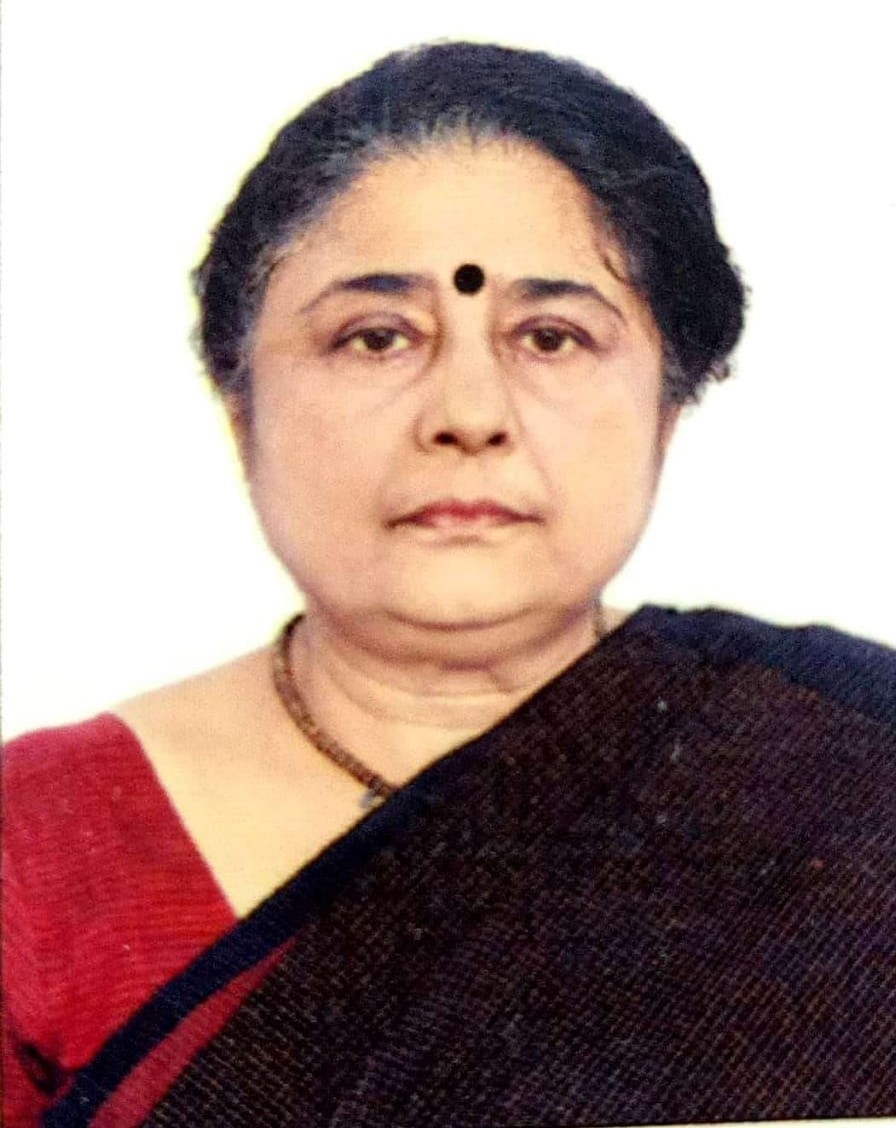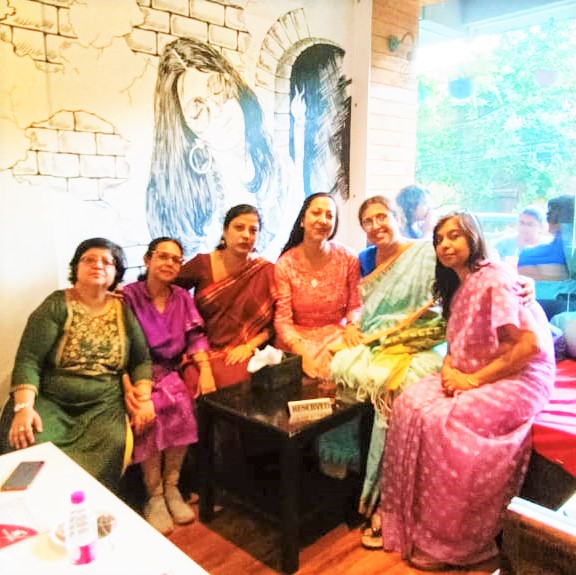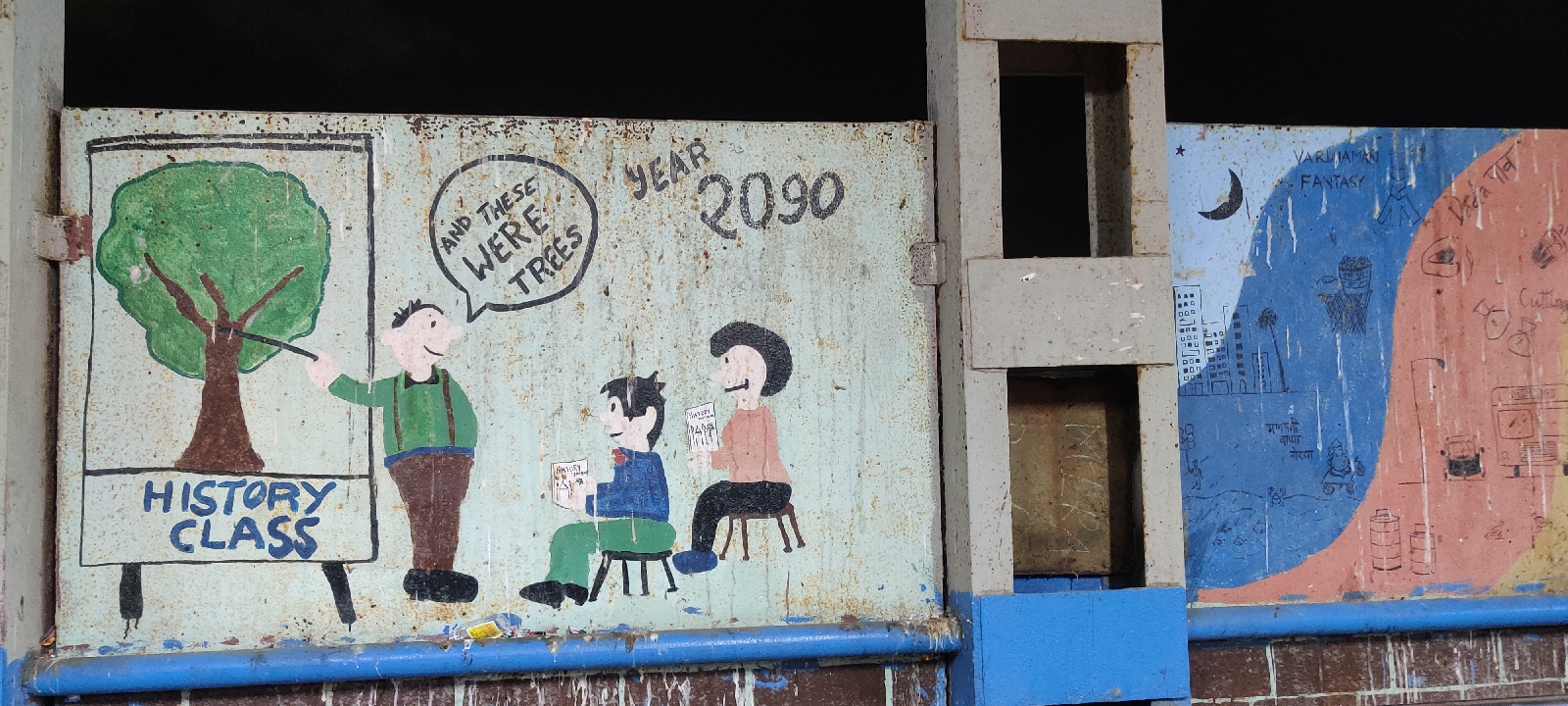History is who we are and why we are the way we are
David McCullough

Some years ago, there was an advert ran by the Star network suggesting how August 15 should be celebrated as birthday of India as a nation, like how we celebrate birthdays of our dear ones. One of the best ways to celebrate a nation's birthday is to revisit her past, learn from the mistakes made and widen our perspectives to usher a progressive future. Hence my today's guest is a woman, an accomplished historian, wisened by education and experience. Meet Dr. Nandini Bhattacharyya-Panda who on the eve of India's 77th year of independence that falls on August 15, 2023, talks about her reservations on freedom as a woman, raises discomforting pointers on History and Manipur and throws fresh insight on casteism and reservation and analyses why the Indians are more into rights than duties.
Born and brought up in Kolkata, West Bengal, India, Nandini B Panda is not another successful working woman. Because her achievements cannot be measured in terms of pay packet and perks. An acclaimed academician, her educational qualifications and written works earned her a status that few Indian women could master. That too, when she had to wade through a not-so-happy family life. She is also a mother to a daughter who too is a brilliant academician.
Dr. Nandini B Panda, 65, was born and brought up in the then Calcutta (Kolkata), West Bengal, India. She had graduated with History from Brabourne College, then did her post graduation in Modern History from Calcutta University and then left for UK to do her doctorate from Oxford University.
A distinguished author -researcher, Dr. Panda has worked on law, ethnicity and culture in the Eastern Himalayas, Northeast India in addition to her expertise on Hindu law. She is writing an article on Moirang, near Imphal, where the Indian National Army (INA) hoisted the first flag declaring the liberation of India on April 14, 1944. She is also writing a foreward for a book titled, 'Colonial Law and Trial of the Nationalist Leaders'. Recently, she has been awarded a project by the Indian Council of Historical Research (ICHR) to write on the Colonial History of Manipur and its repercussions for India that we see today.
My questions center around these aspects and some
more. Primarily, over an online written interview, Dr. Nandini Bhattacharyya-Panda responded with elan while negotiating the googlies thrown by yours sincerely, Sudeshna Chatterjee.
1)
As
an educated woman, what sort of freedom you see around and what sort you had
envisaged? Are you happy, disappointed or annoyed? Kindly explain.
NBP: Freedom is an elusive word for women, irrespective of any classification and place of living across the world. For Indian women, the word 'freedom' is weighed more stringently, thanks to cultural appropriation. As a woman born in a post-colonial country, we have been grown up with specific notions of selfhood. It combines a vague
consciousness about ‘modernity’ (modernity - within quote as the term cannot be
easily defined) with deeply entrenched traditional moorings. This duality is embedded in the mentality of vast majority of Indian women irrespective of
their class, educational and professional background. The Indian patriarchy
largely inhabits in this consciousness and nourishes it through various
channels. This duality has double edge: (a) the patriarchal fraternity in
contemporary India attempts to overpower the voices of women in the name of
tradition and the evils of ‘modernity’ (by modernity, they usually imply
independent status and voice –
occasionally empowered by professional jobs), (b) the culture of silence that
still prevails among majority of Indian women.
Therefore, for
majority of women in India across all classes, freedom is not a
choice per se even if they are earning money. They have to struggle against
discrimination at home and in the professional sphere in terms of attitude and
pay packet. Sexual harassment and abuse is another issue which is addressed by
law; yet it is difficult to claim that law has changed the objective scenario
on any fundamental level. I am an optimist- nevertheless. World is definitely
changing in favour of women's liberation albeit the pace is slow and often interrupted by negative
forces.
2)
Manipur
is now in the news because of intense ethnic strife. Kindly explain the importance
of Manipur vis-à-vis the Pre-British and Post-British India. What will be your
focus when you write its history?
NBP:
The
Kingdom of Manipur was a Princely state under the suzerain status of the
British Empire. Like any other territory in Northeast India, Manipur was a
strategic and resource frontier for the British Raj. The entire passage of
colonial rule in Manipur was marked by volatile anti-colonial struggle between
the British rulers and the native subjects in Manipur. The Independent India inherited an unstable and largely volatile state after the merger of the
Kingdom of Manipur with India in 1949. The Indian government has been deploying
several policy measures to ensure socio-political stability in Manipur. The
objectives are yet to be fulfilled.
Manipur was the confluence of
different languages, religious faith and aesthetic practices in the precolonial
period and a thriving centre of trade and commerce. With the advent of the
British rule the entire region emerged as a site of violence, contestation and
conflict. The colonial rule introduced new dynamics that altered the prevalent
structures in the spheres of economy and polity leading to the formation of a
‘princely state’ within suzerain status. For example, with the introduction of the
British rule, Manipur had been introduced to a complex administrative structure
under the British sovereignty while the Kings of Manipur remained a titular
head especially in the administrative, legal and economic affairs. In the
process, the people in the state had been drawn within a dual framework of
native and colonial systems leading to the uneven development of the society.
More than two centuries of British rule produced widespread discontent within
different layers in the society which frequently resulted in armed encounters
between the rulers and the subjects. Manipur earned the attribute of an
“unquiet valley” due to recurrent insurgency, ethnic dissension and volatile
ethno-state relationship. The postcolonial Indian state inherited the legacy of
restoring peace and stability in Manipur (as also in other Northeastern
states). It is evident from the current contestation and conflict that Manipur is still a critical challenge for the governments in dealing with backwardness,
political instability, distrust of the ethnic communities against the unitary
‘nation-state’ model, diversity in ethnicity, ecology, cultural and above all
strategic vulnerability.
My study will undertake a critical
examination of the administrative, legal and cultural policies of the colonial
rulers in Manipur to understand as to what extent the current governing
structures are historically linked with the colonial past. It will locate the
areas, for example land holding, religion among others in which there are the
necessity to revisit the existing policy structures which have remained as the
sources of conflict from the colonial past.
3)
What
is your take on the present- day violence in Manipur? Here, kindly comment
whether you feel casteism is the biggest bane for the country? Yes/no, is
reservation the answer? What would have been your solution?
NBP:
There are many writings and expert comments on the roots of present day
conflict in Manipur. I am not going into the whataboutery and dissecting who is
responsible for what. The root of the present day conflict is
extremely complex and embedded with the issues of land, religion, ethno-state estrangement,
ethnic rivalry and deep-seated economic crisis that dates back to the colonial
time.
Casteism
is indeed the greatest bane in India. It is the root of economic, social and
cultural oppression. It is extremely unfortunate that caste hierarchy still
prevail among the educated people. The caste consciousness and even racism is
vivid in the matrimonial column in the newspapers. Casteism dominates the
psyche of many in all the institutions for higher education, professional
institutions and even schools although it is covered with rhetoric.
I
am not very sure whether reservation is THE answer to address Casteism. It is a
necessary tool to provide equality and justice for the depressed and oppressed
people. There is a big question mark however as to what extent the privileges
reach the underprivileged both in the rural and urban area. It is frequently
alleged that the more privileged section among the scheduled people enjoy the
privileges offered by reservation. At present it is politically incorrect to
define by someone under the category of ‘lower caste’ or ‘upper caste’. I am
not very sure how would one defines a person marginalised by both economic and
social factors. I really am not competent to comment on the likely solution to
this malignant social problem. It is present over centuries.
Earlier though, manifestation of the caste hierarchy was different. In the
contemporary period the educational facilities and privileges offered through
reservation have produced different kinds of mind set and antagonistic
sentiment on both sides of the margin.
4)
How
important is studying History? Which is your favourite chapter in History- national and international, and why? How accurate you think is the Indian
History as written by the scholars through the years? Also, would you recommend
books on historical fiction?
NBP:
It is a very tricky question. I think that History is the mother of all
subjects. It shapes the imagination, consciousness and entity of an individual
in a given society. At the same time History is not a TRUTH per se at what one
reads in a book. History is generated and catered through filtered
knowledge in many instances. For example, in the postcolonial history book, the
landmark event in Moirang which recorded the hoisting of national flag of
independent India in 1944 is not mentioned. History books
record many other events, which could be of lesser significance. One may question, why
this extremely important chapter in the history of national movement in India
is a forgotten page in the history book. I will try to find an answer and write
about this in my forthcoming article.
There
are long lists of historical fictions across the world. We have grown up with
Bankimchandra Chattopadhyay and Saradindu Bandopadhyay (Bengali), Charles Dickens (English) and other translated classic works by writers like Munshi Premchand (Hindi) and Romain
Rolland (French), Fyodor Dostoevsky ( Russian) et al. These are classics
which provide essential imagination to be a sensitive citizen in a given
society. So, yes, I do respect historical fictions as they fill up an important space in the making of a good citizen.
5)
What
would you advise the now generation about their duties (an integral part
of Indian Constitution) and rights? Do you feel Indians are more focused on
their Fundamental Rights than their Fundamental Duties, the latter,
unfortunately is not even binding upon its subjects though?
NBP: Well, charity begins at home. I mean a child becomes aware of his/her rights and duties initially from the families. School plays a formidable role thereafter. Children in this world and in my country are not too fortunate either way. The privileged ones are looking out for the best bargains while pursuing their dreams, in India or abroad. The less privileged ones are struggling to make both ends meet.
I do agree that Indians are extremely conscious of their rights rather than duties. I wonder whether there is a historical link with the anti-colonial struggle and the politics of agitation. Yes, it may be a colonial legacy.
Nevertheless, the current generation
must pay heed to climate change and food shortage which threaten to ruin our Mother Earth. Therefore, they cannot and should not ignore their Fundamental Duties towards their nation and the world at large.
#History#Moirang#Manipur#BankimchandraChattopadhyay#SaradinduBandopadhyay#CharlesDickens#MunshiPremchand#RomanRolland#NandiniBhattacharyyaPanda#SudeshnaChatterjee#freedom












